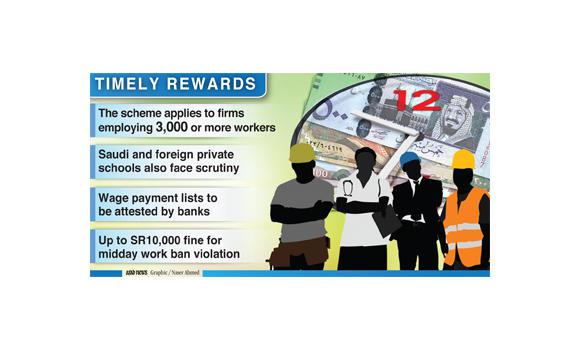Saudi and foreign private schools need to abide by the new rule irrespective of the number of employees on their payroll, said a senior official.
The companies and schools must submit complete details of wages paid through banks to the ministry via its website (emol.gov.sa), said Deputy Labor Minister Abdullah Abuthnain.
 “The program aims at ensuring that all Saudi and expat workers at private firms received their salaries as per their contracts.”
“The program aims at ensuring that all Saudi and expat workers at private firms received their salaries as per their contracts.”
The ministry will compare the wage payment list submitted by companies with the data they already have, said the official.
“The move aims to streamline the Kingdom’s labor market, removing discrepancies and creating a secure and stable atmosphere for workers,” he said.
“This will help reduce labor issues and increase workers’ productivity. It will also help us uncover fake firms, fight cover-up businesses and get rid of excess labor in the market,” he said.
Speaking about violators of mid-day work ban during summer from noon to 3 p.m., he said such firms would be fined not less than SR3,000 and not more than SR10,000.
He said the firm could also face the threat of permanent shutdown or a 30-day closure, depending on the extent of the violation.
There was cautious optimism among citizens and expats about the new wage protection program.
Ziyad Al-Rahmah, a member of the National Committee for International Schools at the Council of Saudi Chambers, said the program might place extra burden on private firms.
P. K. Ibrahim, assistant manager, trade finance center at Riyad Bank’s corporate office in the Western Region, said the payment of salaries through banks would help both companies and workers as it would enable them to get bank loans easily.
He said banks would be obliged to open accounts for workers if the ministry insists on distributing salaries through them.





Comments
Add new comment